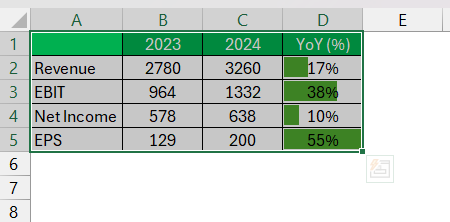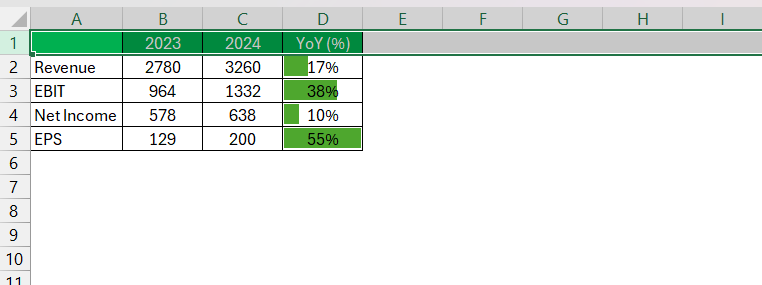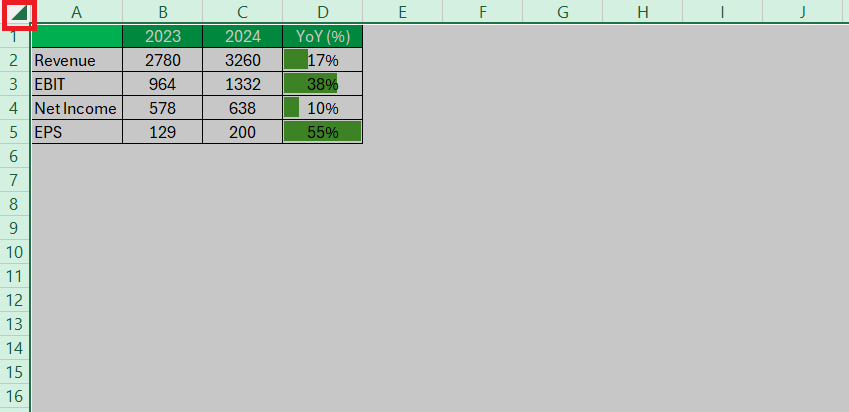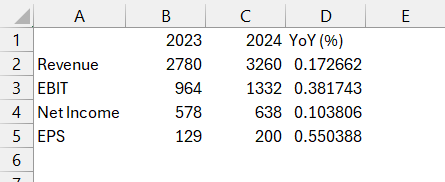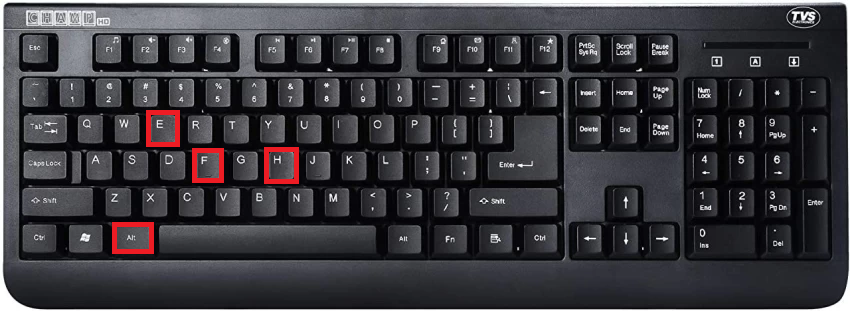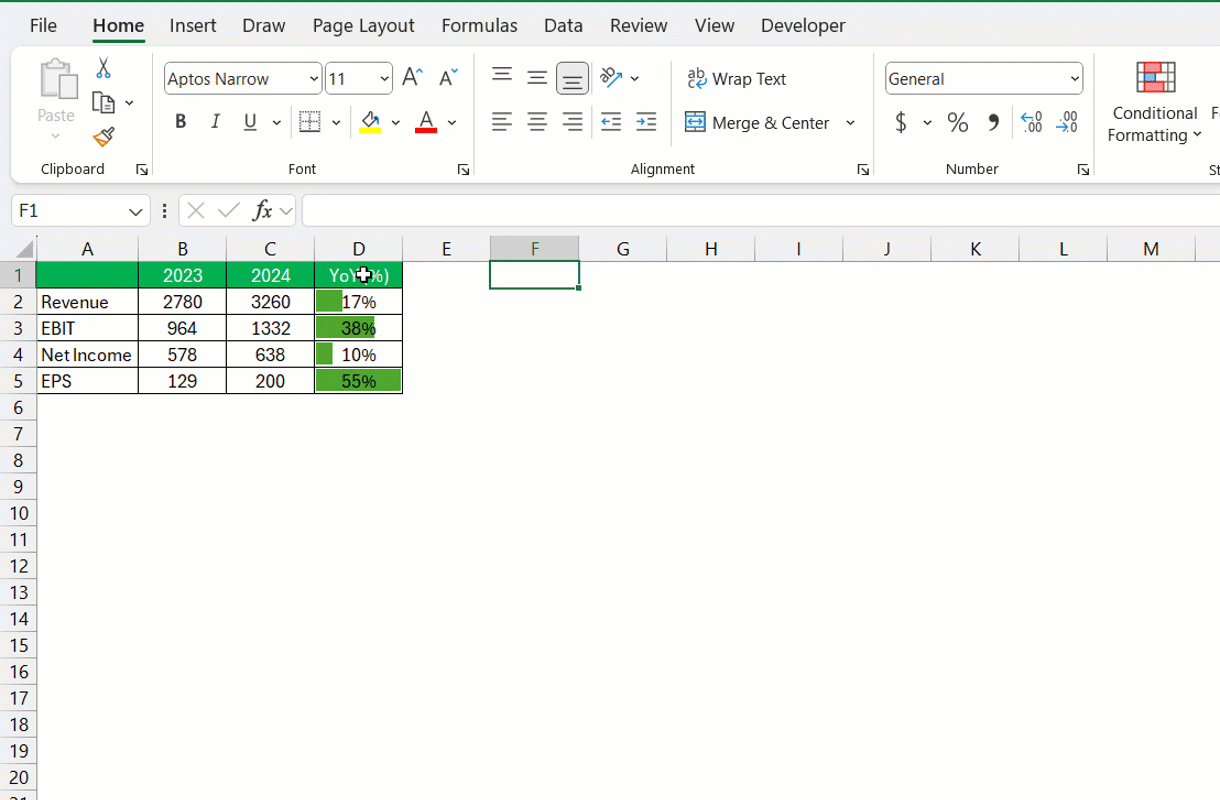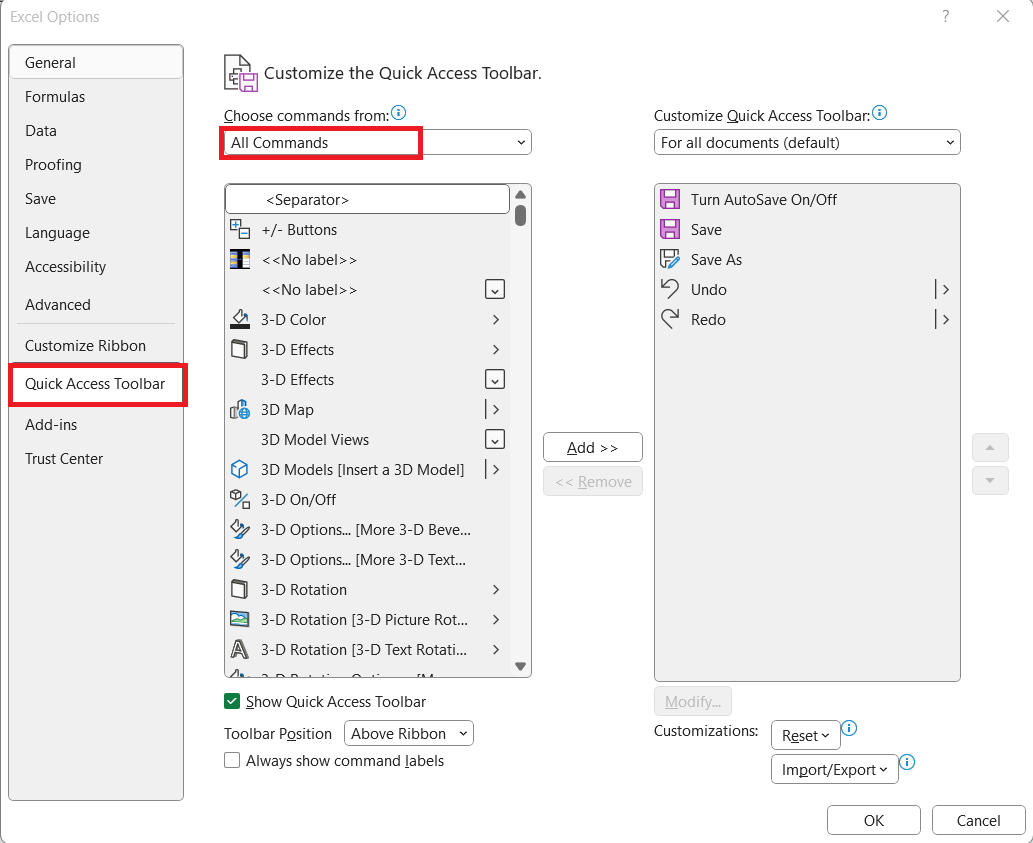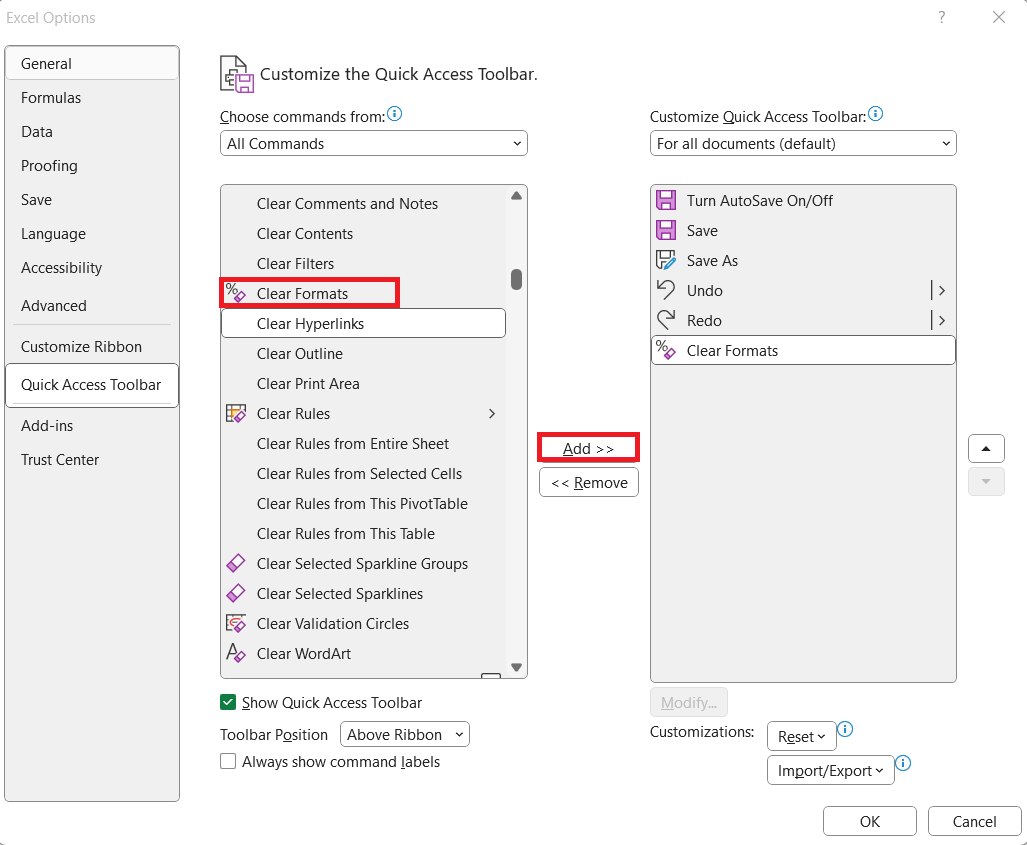Removing formatting in Excel can streamline your data presentation and ensure consistency across your spreadsheets. Whether you’ve inherited a file with distracting styles or need to revert to a clean slate, understanding how to efficiently clear formats is essential. This guide will walk you through simple steps on how to remove formatting from your Excel cells, allowing you to work with a fresh and uniform data set.
Key Takeaways:
- Removing formatting in Excel can enhance readability and consistency across your spreadsheets.
- The ‘Clear All’ option in the Home tab allows for quick and complete removal of all formatting styles from selected cells.
- Keyboard shortcuts, such as Alt+H, E, F, provide an efficient way to clear formatting without navigating through menus.
- Format Painter can help remove unwanted formatting by applying the format of a blank cell to other cells.
- Customizing the Quick Access Toolbar with the ‘Clear Formats’ option streamlines the process of removing formatting in Excel.
Table of Contents
Introduction to Excel Formatting
Understanding the Basics of Excel Formatting
When I dive into Excel, formatting becomes my visual assistant, highlighting important data and setting the stage for analysis and reporting. Excel gives me a plethora of tools for making my data stand out: colors, fonts, borders, and number formats help me organize and differentiate my spreadsheet’s content at a glance.
Why and When to Remove Formatting in Excel
Removing Excel formatting is as crucial as applying it because clean and simple sheets enhance readability and comprehension, especially when collaborating. Imagine a spreadsheet filled with multiple conditional formats, colors, and font styles—it can become overwhelming and less effective in conveying my data’s story. Removing excessive formatting reduces clutter, helping me and others to digest information more smoothly and spot trends effortlessly.
I might want to strip away formatting when consolidating data from myriad sources to maintain consistency, sharing the document with others who may have different aesthetic preferences, or when I’m at the stage of formatting my data to align with updated organizational style guides. Also, if I’m building a template, starting from a plain canvas ensures that only the necessary formatting is added for clarity and efficiency.
Step-by-Step Guide on How to Remove Formatting
Select the Cells for Formatting Removal
Before you begin the transformation of your Excel workbook from a colorful canvas to a pristine masterpiece, your first move is to choose the battleground—that is, select the cells whose formatting you want to strip away. You may decide on a small territory—a single cell or a cluster—or perhaps you’re conquering an entire row, column, or, if you’re feeling particularly bold, the whole spreadsheet.
To select, simply click and drag your cursor across the desired cells.
For a whole row or column, click its header.
And for the ambitious ‘select all’ maneuver, find the corner button where the row and column headers meet, clicking it will command Excel to highlight everything in sight.
Utilizing the ‘Clear All’ Option for Instant Clean-Up
After selecting the cells, the ‘Clear All’ option is your handy broom, sweeping away all the formatting in just a dart of a moment. You’ll find this little magician in the ‘Home’ tab, nested under the ‘Editing’ group. Click ‘Clear’ and then ‘Clear Formats’ to bid adieu to any formatting styles holding your cells hostage.
It’s a complete wipe, mind you, not merely a tidy-up—formats, comments, and notes will vanish, leaving behind the raw, unembellished data.
Remember though, ‘Clear All’ is indiscriminate—it doesn’t take prisoners, so ensure your selection doesn’t contain any content you wish to keep intact.
Keyboard Shortcuts: Your Fast Track to Format-Free Cells
The Power of Key Combinations to Clear Formatting
Key combinations, or keyboard shortcuts, are your secret weapon in the battle against time-consuming formatting tasks. In the realm of Excel, everyone from novices to spreadsheet sorcerers can benefit from this stroke of efficiency. To clear formatting, you wield the keys Alt+H, E, F together—like a magic spell, your selected cells will be stripped of their visual styles in a blink.
This method is pure alchemy for productivity: no menus, no mouse clicks, just a swift act of your fingers. Think of it as teleportation versus a leisurely stroll—why walk when you can instantly be where you need to be?
Streamlining with Excel’s ‘Format Painter’
How ‘Format Painter’ Can Help Remove Unwanted Formatting
Format Painter is often used to copy formatting from one place to another, but it can also scrub away unwanted styles with equal grace. The trick is simple: first, select a cell that’s format-free, then click the ‘Format Painter’—found on the ‘Home’ tab in the ‘Clipboard’ group—and finally, apply it to the formatted cells you wish to clear. Think of this like painting over an old, chipped wall with a fresh, clean layer.
Do keep in mind, ‘Format Painter’ is like a blunt instrument; it can’t selectively clear formatting like bold or italic applied to specific text portions within a cell. It’s an all-or-nothing approach.
Tips for Leveraging ‘Format Painter’ for Faster Formatting Fixes
To maximize ‘Format Painter’s potential, clutch these top tips in your Excel toolkit:
- Double-Click to Persist: If you’re on a formatting-clearing spree across multiple cells or sections, double-click ‘Format Painter’ to keep it active. Single cells or ranges can now be clicked in succession without repeatedly going back to the tool.
- Use on Multiple Sheets: ‘Format Painter’ isn’t confined to just the sheet you’re on. It’s a wizard that can jump between sheets in the same workbook. Just copy the format from one sheet and apply it wherever desired in another.
- Lock the Cells for Consistency: When working in a shared spreadsheet, locking the cells after clearing formatting ensures consistency and avoids accidental re-styling by collaborators.
- Keyboard Shortcut: Get faster by using the keyboard shortcut ‘Ctrl’ + ‘Shift’ + ‘C’ to copy the format and ‘Ctrl’ + ‘Shift’ + ‘V’ to paste it. It’s ‘Format Painter’ without the paintbrush.
- Format Painter for Shapes: ‘Format Painter’ works on shapes and text boxes, too. Ensure graphic elements have a unified appearance by spreading the format efficiently across various objects.
Remember, ‘Format Painter’ is your ally for not just deleting formatting but also for ensuring uniformity throughout your document, saving you valuable time and granting your work a professional polish.
Automating Format Cleaning in Excel
Setting Up Quick Access for Format Removal Functions
Enabling lightning-fast format clearing starts with tailoring the Quick Access Toolbar to your workflow. By adding the ‘Clear Formats’ option within easy reach, you turn a multi-click journey into a single-click shortcut to uniformity.
Here’s how to bring this convenience into your Excel life:
STEP 1: Dive into the ‘File’ menu, and select ‘Options’.
STEP 2: Navigate to ‘Quick Access Toolbar’ and set the stage by choosing ‘All Commands’.
STEP 3: Scroll to find ‘Clear Formats’, add it to your toolkit, and watch it settle into the Quick Access Toolbar—a trusty sidekick now always at your command.
The Clear Format button will appear in the Quick Access Toolbar.
By customizing Quick Access, you can feel like a conductor, with the most used functions as instruments ready to play at a moment’s notice.
FAQs on Clearing Excel Formatting
What is the shortcut key for clear all formatting in Excel?
The shortcut to clear all formatting in Excel is ‘Alt + H + E + F’. This quick key combination immediately strips the selected cells of any formatting, gifting you with a blank canvas in no time. Remember, the formula in the cell remains unaffected, keeping your data intact while refreshing its appearance.
Can You Clear Formatting the Same Way in Google Sheets?
In Google Sheets, clearing formatting is just as streamlined but with a different twist in the dance of keystrokes. You’ll use ‘Ctrl’ + ” (backslash) to sweep the formatting from your selected cells. So yes, the essence of the functionality mirrors Excel, but with its own Google-flavored shortcut that’s easy to remember and execute.
How do I remove table formatting in Excel but keep data?
To remove table formatting in Excel but retain the data, right-click any cell in your table and choose ‘Table’ > ‘Convert to Range’. Confirm your choice in the prompt that appears by clicking ‘Yes’. Your table formatting will vanish, but all your precious data remains, now in a regular range of cells.
How do I turn off data formatting in Excel?
To turn off data formatting such as date, number, or currency in Excel, select the cells you want to alter, right-click, and choose ‘Format Cells’. Under the ‘Number’ tab, select ‘General’. This switches the cell format back to the default, displaying the raw data as plain text without special formatting.
How do I remove duplicate cell formatting in Excel?
To remove duplicate formatting in Excel, first, select the range of cells where duplicates may exist. Then, go to the ‘Home’ tab, and under ‘Styles’, find ‘Conditional Formatting’. Choose ‘Clear Rules’, followed by ‘Clear Rules from Selected Cells’, and this will purge your cells of any replicated formats. Simple and effective!
John Michaloudis is a former accountant and finance analyst at General Electric, a Microsoft MVP since 2020, an Amazon #1 bestselling author of 4 Microsoft Excel books and teacher of Microsoft Excel & Office over at his flagship MyExcelOnline Academy Online Course.

